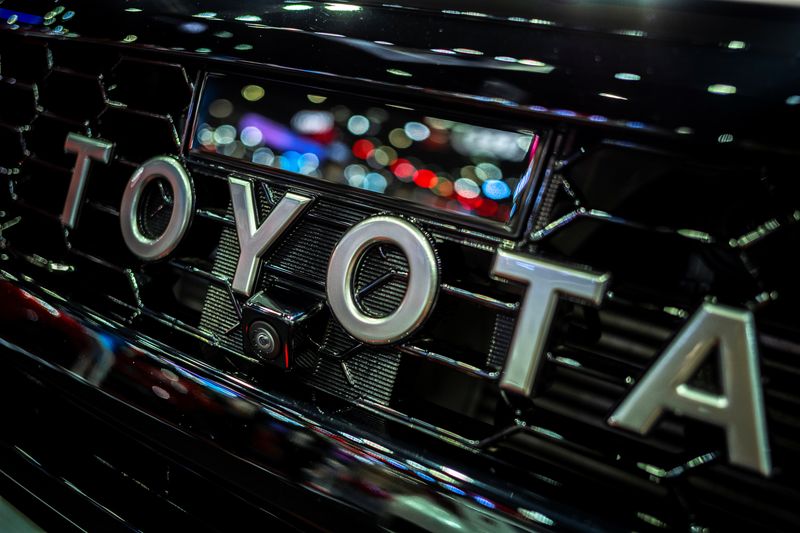Redwood Materials welcomes Toyota to its EV battery recycling initiative
2022.06.21 15:42

FILE PHOTO: The Toyota logo is pictured at the 43rd Bangkok International Motor Show, in Bangkok, Thailand, March 22, 2022. REUTERS/Athit Perawongmetha
By Paul Lienert
(Reuters) – U.S. startup Redwood (NYSE:RWT) Materials Inc on Tuesday said Japan’s Toyota Motor (NYSE:TM) Corp has become the latest auto industry giant to join its comprehensive electric vehicle (EV) battery recycling initiative.
Redwood Materials, whose partners include automaker Ford Motor (NYSE:F) Co and EV battery maker Panasonic (OTC:PCRFY) Holdings Corp, aims to lower EV costs by lessening dependence on imported materials while also reducing the environmental impact.
The five-year-old firm has focused initial work at a 175-acre campus in northern Nevada, but plans to build an even larger complex in southeastern United States, its chief executive and founder, JB Straubel, said in an interview.
The new facility would be able to supply Toyota’s planned $1.3 billion battery plant in North Carolina, as well as Ford’s planned battery plants in Tennessee and Kentucky with SK On, a subsidiary of South Korea’s SK Innovation Co Ltd.
Redwood Materials is ramping up U.S. production of anode and cathode components to 100 gigawatt-hours by 2025, enough to supply batteries for 1 million EVs a year. With its second facility, the production target will be 500 gWh by 2030, enough to supply 5 million EVs a year or more, said Straubel, a co-founder of Tesla (NASDAQ:TSLA) Inc.
Tesla Chief Executive Elon Musk has said the EV maker expects to build up to 20 million EVs a year by 2030, while total global EV production including Tesla could reach as much as 40 million, industry forecasters said.
Straubel said Redwood Materials is having “various discussions” with Tesla, but has no deals to announce yet. Tesla’s partners also include Panasonic.
Toyota has been building hybrid electric vehicles under the Prius name for more than two decades. With a car’s average lifespan roughly 12 years, some early Prius models will be reaching the end of their useful lives.
Once out of service, their nickel metal hydride batteries can be recycled and materials such as nickel and copper reintroduced into the battery supply chain, where they can supplement raw materials from mines.








